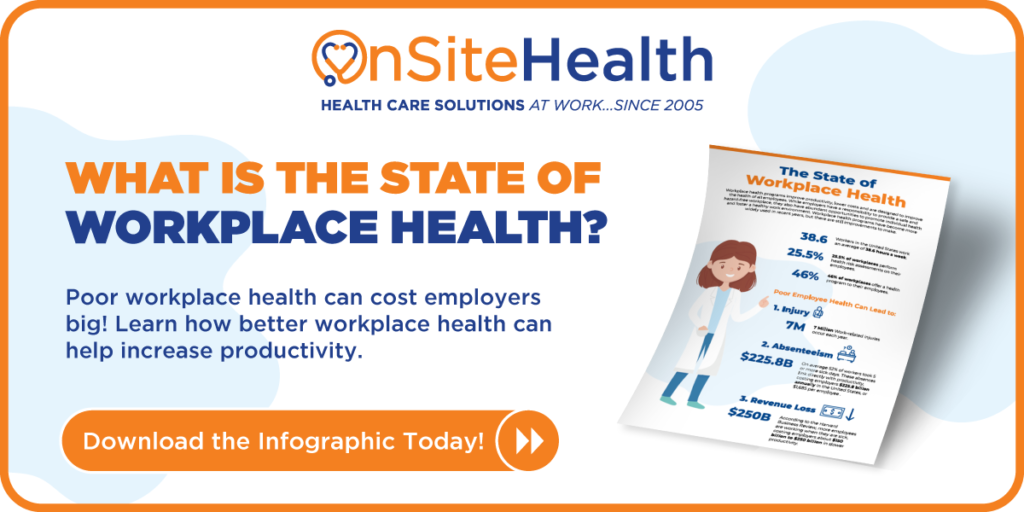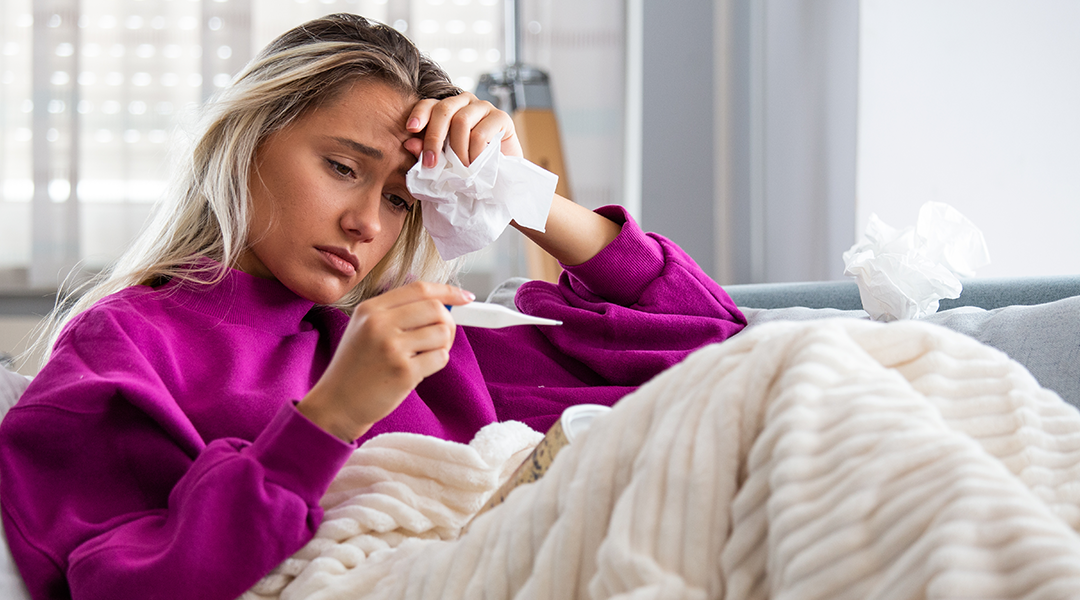You can get a common cold year-round, but as the temperatures cools and humidity dips, the cold-causing virus spreads more easily. While the cold weather itself doesn’t make you sick, winter colds are more common than you may think. Between sneezing, coughing, and runny noses, winter colds are miserable for children and adults alike. Fortunately, by taking the right preventative approach, you can help reduce the risk of sickness for yourself and others this cold season.
Staff an OnSite Health Nurse and Save
>>Click Here for our ROI of On-site Nurses Flyer<<
Causes and Symptoms of Winter Colds
Many different respiratory viruses cause common colds with variations of rhinoviruses and coronaviruses being the most common. While these human coronaviruses are in the same family of viruses as SARS-CoV-2, which causes COVID-19, these viruses only cause a mild illness.
Within one to three days of catching a cold virus, you may exhibit symptoms like:
- Sneezing
- Runny Nose
- Cough
- Sore Throat
- Headache
- Nasal Congestion
- Body Aches
- Fever
These symptoms typically last between 7-10 days. “However, people with weakened immune systems or asthma may develop a more serious illness like bronchitis or pneumonia,” says the CDC.
How to Protect Yourself and Others this Cold Season
Wash Your Hands Properly
Washing your hands is an incredibly important part of keeping yourself and others healthy. You touch thousands of surfaces throughout the day and washing your hands is essential to keeping these germs out of your body.
Keep Your Surroundings Clean
Regularly cleaning and disinfecting surfaces throughout your home and office is just as important as keeping your hands clean. After all, what is the point of clean hands if everything you touch is covered in germs? Take the time to wipe down furniture, keyboards, computer mice, door handles, and other commonly used areas.
Get Enough Sleep
A well-rested body is in a better position to resist illness than one that is exhausted and run down. By getting 7-8 hours of sleep each night, your body will reinforce its natural defenses against infection.
Stay Hydrated
Staying hydrated and drinking plenty of water will help flush the germs out of your system. Our nurses recommend people drink 1/2 to 2/3 of their body weight in ounces for proper hydration. So, if you weigh 150 pounds, you should be drinking 75 to 100 ounces of water per day.
Get Fresh Air
Stepping out of the house and office is a good way to keep the germs at bay. Go outside and get some fresh air and clear your mind.
Take Time for Yourself
Living in a constant state of stress can destroy your immune system, leaving you more vulnerable to winter colds. To alleviate some of your stress, try to take time for yourself and destress. Whether it’s reading a book, taking a hot bath, or yoga, destressing will help you make it through cold and flu season.
Stay Home When You’re Sick
Common colds are passed from person to person which is why your whole office may be sniffling and sneezing. If you’ve caught a cold, stay home so that you don’t pass it along.
Get Your Flu Shot
The best form of prevention toward winter colds is getting your annual flu shot. There are many benefits to getting your flu shot including reduced cold symptoms and improved productivity in the workplace.
At OnSite Health, we are dedicated to helping companies and their employees stay healthy throughout the year. From workplace health strategies, routine screenings, vaccination programs, and on-site nursing, OnSite Health provides numerous services for workplaces throughout the country. To learn more about the importance of employee health and to implement these services in your workplace, contact us today!

